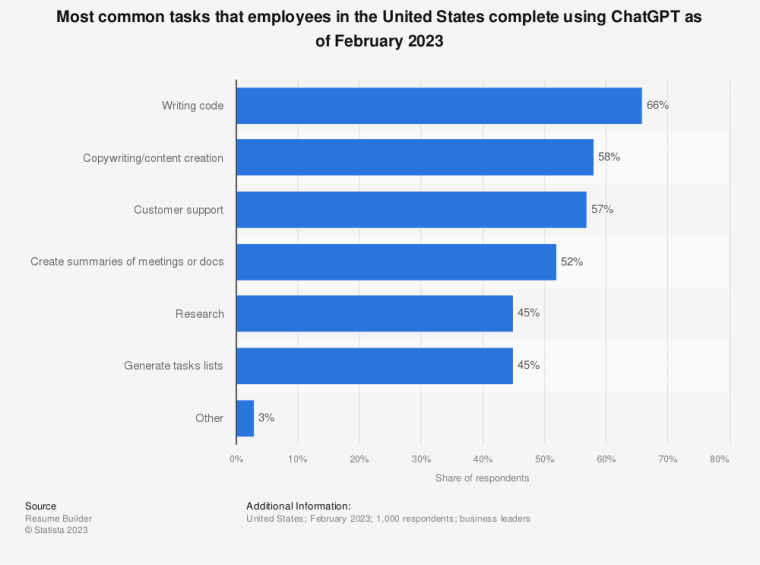
In the fast-paced AI world, AI writing tools have become ubiquitous. With this development, distinguishing AI-generated text presents a real challenge, especially when paraphrased.
Various ChatGPT checker tools exhibit notable loopholes. These AI detection systems aim to safeguard integrity in academia and journalism. Yet, they’re prone to the obfuscation techniques used by AI writing tools like OpenAI’s ChatGPT.
This issue calls for an innovative technology like RADAR. Researchers developed RADAR to identify AI-written text, even when cleverly camouflaged or paraphrased. Therefore, RADAR provides a robust solution to an escalating problem in an AI-integrated world.
With its unique ability to spot disguised AI text, RADAR signifies a substantial leap in safeguarding the integrity of written content in an increasingly AI-dependent world. However, it’s relevant to note that the paper has not yet been peer-reviewed.
Unveiling RADAR: A New Frontier in Detecting AI-Generated Text Amidst Advancements in AI Writing Tools
Identifying if a text is AI-generated proves difficult, particularly when another language model has paraphrased the text. This challenge prompted the development of a revolutionary technology, RADAR.
RADAR operates through an innovative mechanism known as adversarial learning. This process involves the simultaneous training of two unique models in competition with each other, designed to enhance the performance of both.
The “paraphraser” works to modify AI-produced text to mimic human writing, aiming to fool the “detector”. On the other side, the “detector” focuses on identifying whether AI writing tools wrote the text, even when a paraphraser has altered it.
These two models, locked in a continuous rivalry, foster improvement in each other, creating a cycle of enhancement. As the paraphraser becomes more adept at disguising AI-text, the detector similarly improves at identifying it, and the cycle repeats.
The researchers stated that, to the best of their knowledge, RADAR is the first study that leverages the idea of adversarial learning between a paraphraser and a detector for training a robust AI-text detector.
The efficacy of RADAR was evaluated across eight diverse language models and four datasets. The results were remarkable.
Not only was RADAR successful in identifying unaltered AI-text, but it was also proficient in detecting text altered by the paraphraser, a challenge for other detectors.
Prior tools faced a significant decrease in performance when confronted with AI-generated texts that had been altered using various concealment techniques. Techniques such as manual editing or machine paraphrasing often led to a misattribution rate of around 50%. RADAR, however, effectively counters this issue by detecting AI-text, even when paraphrased.
Moreover, RADAR exhibited strong “transferability,” implying that a detector trained on one language model effectively spotted AI-text from other models. This result suggests the feasibility of training a universal AI-text detector compatible with all kinds of language models.
Rising Utilization of AI Writing Tools: Analyzing the Disparity in Engagement with AI-Generated Content
RADAR’s use aligns with a growing reliance on AI writing tools, especially in writing tasks. In the US, there’s been a surge in using AI for language generation tasks.
As of February 2023, Statista data shows that 58% of respondents reported using ChatGPT for copywriting/content creation. This was the second-most common task that employees in the US completed using ChatGPT, preceded only by writing code (66% of respondents).
Source: Statista
Meanwhile, 57% of respondents used it for customer support and 52% for creating summaries of meetings or documents.
As content written by AI writing tools becomes more common, its reception varies. A study shed light on this, since it examined interest in AI-written books among US adults. The findings published by Statista highlight discrepancies across generations and sexes as of April 2023.
Of the surveyed total adults, 31% were very or somewhat interested, while 52% were not too or not at all interested.
Source: Statista
The data by generation showed that 39% of Gen Z and 47% of Millennials were very or somewhat interested. However, only 26% of Gen X and 17% of Baby Boomers shared this enthusiasm.
Statista data also pointed out a divide between the sexes. Males were more interested than females in reading AI-written books. While nearly half of men were very or somewhat interested (42%), only around a fifth of females expressed the same interest (22%).
Source: Statista
These statistics highlight the evolving relationship between AI-generated content and its reception. This fact underscores the importance of tools like RADAR. Such tools are critical in distinguishing texts generated by AI writing tools in a world growing more accustomed to them.
AI Writing Tools and the Pursuit of Authenticity
The ascent of AI writing tools brings both opportunities and complexities. The public’s response to AI-generated content is mixed, as a result of generational backgrounds and sexes. In this evolving landscape, preserving the veracity of written content emerges as a pressing concern.
This is why RADAR, an innovative tool employing adversarial learning, could be a promising solution.. It is said to effectively detect AI-crafted text, whether original or cleverly rephrased.
The exploration of these tools is still unfolding, making RADAR’s emergence an enlightening development. Like any pioneering tech, RADAR requires further trials and refinements to ensure that AI writing tools are not taking over every aspect of the written language.
Related Articles:
- AI Detectors Are Shockingly Inaccurate and Discriminate Against Non-Native Speakers Finds Top AI Blogger
- Best Free and Paid AI Content Generator & Writing Software for 2023
- 13 Best AI Essay Writing Tools for 2023
What's the Best Crypto to Buy Now?
- B2C Listed the Top Rated Cryptocurrencies for 2023
- Get Early Access to Presales & Private Sales
- KYC Verified & Audited, Public Teams
- Most Voted for Tokens on CoinSniper
- Upcoming Listings on Exchanges, NFT Drops
